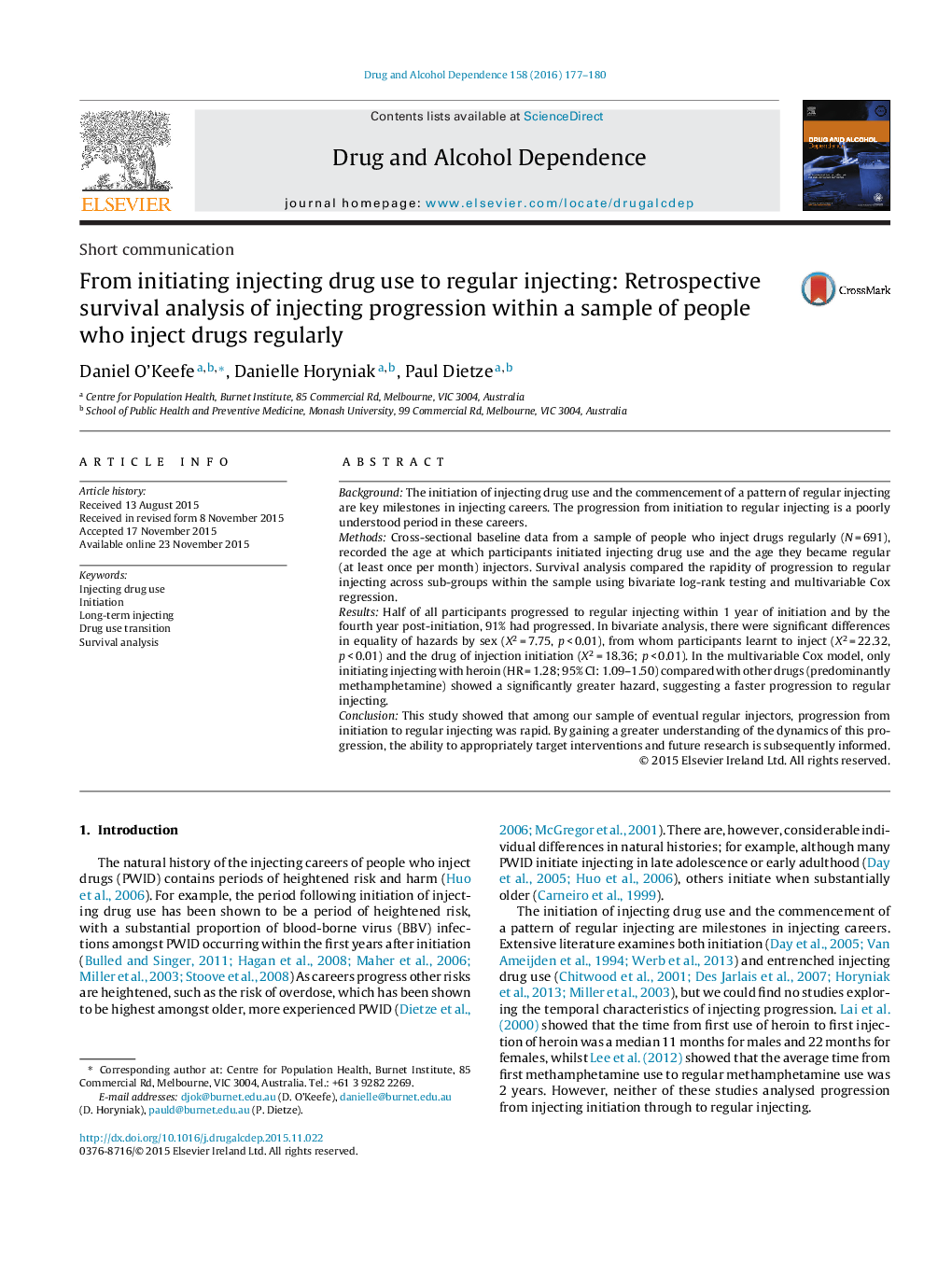| Article ID | Journal | Published Year | Pages | File Type |
|---|---|---|---|---|
| 1069757 | Drug and Alcohol Dependence | 2016 | 4 Pages |
•Progression from the initiation of injecting drug use to regular injecting is rapid.•Half the sample made this progression within 1 year post-initiation.•91% of the sample had made the progression by the fourth year.•Initiation with heroin was found to be associated with a more rapid progression.
BackgroundThe initiation of injecting drug use and the commencement of a pattern of regular injecting are key milestones in injecting careers. The progression from initiation to regular injecting is a poorly understood period in these careers.MethodsCross-sectional baseline data from a sample of people who inject drugs regularly (N = 691), recorded the age at which participants initiated injecting drug use and the age they became regular (at least once per month) injectors. Survival analysis compared the rapidity of progression to regular injecting across sub-groups within the sample using bivariate log-rank testing and multivariable Cox regression.ResultsHalf of all participants progressed to regular injecting within 1 year of initiation and by the fourth year post-initiation, 91% had progressed. In bivariate analysis, there were significant differences in equality of hazards by sex (X2 = 7.75, p < 0.01), from whom participants learnt to inject (X2 = 22.32, p < 0.01) and the drug of injection initiation (X2 = 18.36; p < 0.01). In the multivariable Cox model, only initiating injecting with heroin (HR = 1.28; 95% CI: 1.09–1.50) compared with other drugs (predominantly methamphetamine) showed a significantly greater hazard, suggesting a faster progression to regular injecting.ConclusionThis study showed that among our sample of eventual regular injectors, progression from initiation to regular injecting was rapid. By gaining a greater understanding of the dynamics of this progression, the ability to appropriately target interventions and future research is subsequently informed.
